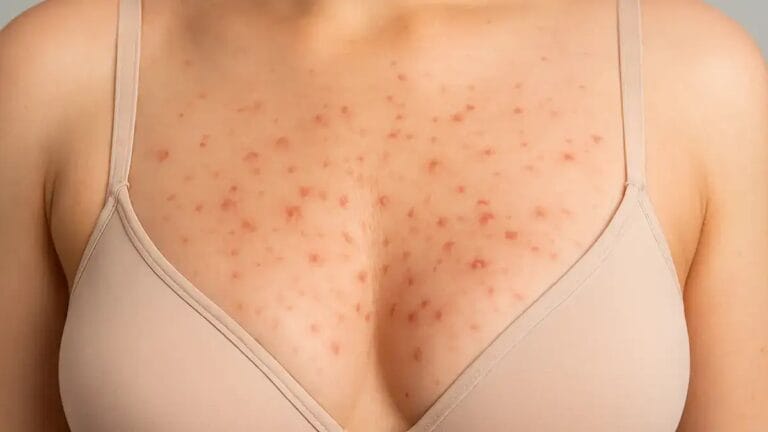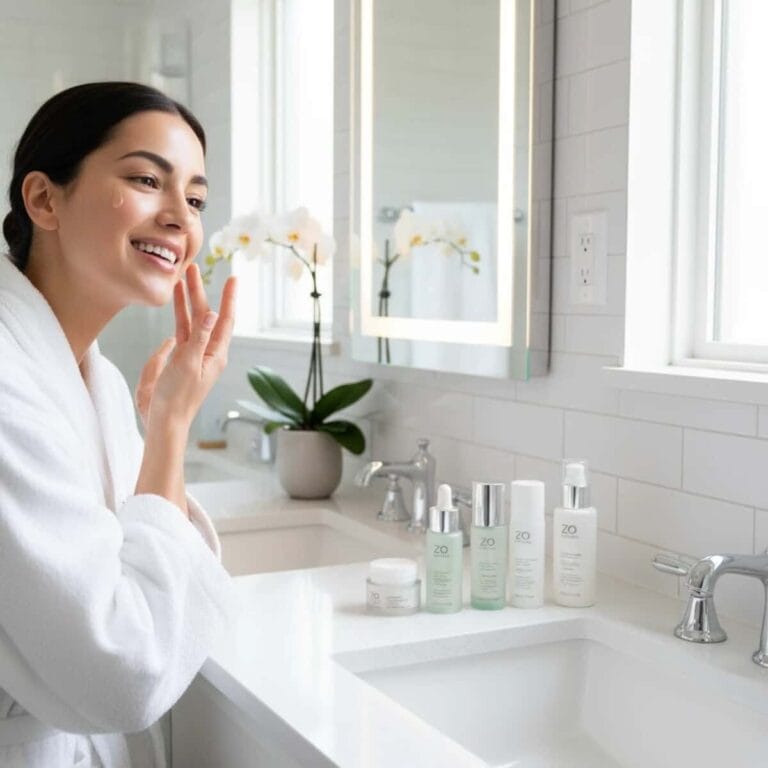Face Masks 2025: Types, Benefits & How to Choose
Face Masks 2025: Types, Benefits & How to Choose
Table of Contents
Introduction
What Are Face Masks?
Why Face Masks Are Essential
Types of Face Masks
Why Knowing Mask Types Matters
Benefits of Face Masks
How to Choose the Right Face Mask
Tips for Using Face Masks Effectively
Do Face Masks Expire?
FOQs About Face Masks
Conclusion
Introduction
Face masks have become an essential part of modern skincare routines, providing Rapid and effective solutions for hydration, cleansing, and rejuvenation. Whether you are looking for a Korean face mask to brighten your skin, a black mask to unclog pores, or a gentle kids face mask for sensitive skin, there’s a product for every need.
In this guide, we’ll cover the types, benefits, and tips to choose the right face mask in 2025, along with expert advice on usage and storage.
What Are Face Masks?
Face masks are specialized skincare treatments designed to improve the health, appearance, and texture of your skin. They are applied directly to the face and are formulated to target specific concerns such as dryness, acne, dullness, signs of aging, and uneven skin tone. Masks can provide a spa-like experience at home and are an effective way to enhance your daily skincare routine.
Face masks come in various forms and formulations, each suited for different skin types and goals. Here’s a breakdown:
1. Sheet Masks
- Description: Sheet masks are thin fabric or hydrogel sheets soaked in nutrient-rich serums.
- Benefits: Provide instant hydration, brighten dull skin, and can deliver concentrated ingredients like vitamins and antioxidants.
- Usage Tip: Apply on a cleansed face for 15–20 minutes, remove, and gently pat in excess serum.
- Popular Options: Korean face masks are well-known for their effective sheet mask formulations.
2. Clay Masks
- Description: Clay masks are thick, paste-like masks made from natural clays such as bentonite or kaolin.
- Benefits: Absorb excess oil, draw out impurities, reduce blackheads, and tighten pores.
- Best For: Oily, combination, or acne-prone skin.
- Tip: Apply evenly to affected areas and rinse off once it dries. Steer clear of excessive use as it may cause skin dryness.
- Popular Option: Black face masks are often clay-based and highly effective for deep cleansing.
3. Cream & Hydrating Masks
- Description: Cream or gel masks are rich in moisturizing ingredients like hyaluronic acid, aloe vera, or shea butter.
- Benefits: Deeply nourish and hydrate dry or sensitive skin, soothe irritation, and improve elasticity.
- Best For: Dry and sensitive skin types.
- Tip: Can be used overnight as an intensive treatment for extra hydration.
4. Peel-Off Masks
- Description: Peel-off masks are designed to form a film over the skin, which is peeled away after drying.
- Benefits: Remove dead skin cells, unclog pores, and improve skin texture.
- Best For: Normal to oily skin, areas prone to blackheads.
- Tip: Apply a thin, even layer; avoid sensitive areas like eyes and lips.
5. Specialty & DIY Masks
- Kids Face Masks: Gentle and safe formulations specifically designed for children’s sensitive skin.
- DIY Masks: Homemade masks using natural ingredients like honey, yogurt, oatmeal, or turmeric to target hydration, brightening, or acne control.
- Benefits: Customizable solutions for individual skin concerns; natural ingredients reduce the risk of harsh chemicals.
Why Face Masks Are Essential
Face masks are not just a luxury—they are an essential part of modern skincare because they allow targeted care. Using the right mask for your skin type can:
- Hydrate and nourish the skin deeply
- Detoxify and cleanse pores effectively
- Improve skin texture and radiance
- Provide relaxation and stress relief
Regular use of face masks can complement your daily skincare routine, making your skin healthier, more radiant, and resilient.
Types of Face Masks
Face masks come in various formulations to target different skin concerns. Understanding the types will help you choose the right mask for your skin in 2025.
1. Sheet Masks
- Description: Thin fabric or hydrogel sheets soaked in nutrient-rich serums.
- Benefits: Hydrating, soothing, and easy to use. Delivers concentrated ingredients like vitamins and antioxidants directly to the skin.
- Popular Uses: Brightening, anti-aging, hydration boost.
- Tips:
- Apply on a cleansed face for 15–20 minutes.
- Pat in the leftover serum instead of rinsing.
- Example: Korean face masks are especially popular for hydration and skin glow.
2. Clay Masks
- Description: Thick, paste-like masks made from natural clays such as bentonite or kaolin.
- Benefits: Deep cleansing, absorbs excess oil, unclogs pores, and reduces blackheads.
- Best For: Oily, combination, or acne-prone skin.
- Tips:
- Apply a thin layer to targeted areas.
- Rinse thoroughly after drying to avoid over-drying.
- Example: Black face masks are often clay-based, ideal for detoxifying and deep pore cleansing.
3. Cream & Hydrating Masks
- Description: Rich, creamy formulations with moisturizing ingredients like hyaluronic acid, aloe vera, and shea butter.
- Benefits: Provides intensive moisture, soothes dry or irritated skin, and improves elasticity.
- Best For: Dry or sensitive skin types.
- Tips:
- Can be used as an overnight mask for deep hydration.
- Apply on clean skin and leave for 10–20 minutes if using as a daily mask.
4. Peel-Off Masks
- Description: Masks that dry into a film and can be peeled away to remove impurities.
- Benefits: Exfoliates dead skin cells, tightens skin, improves texture, and unclogs pores.
- Best For: Normal to oily skin, areas prone to blackheads.
- Tips:
- Apply evenly in a thin layer.
- Avoid sensitive areas like eyes and lips.
- Not recommended for broken or very sensitive skin.
5. Specialty Masks
Kids Face Masks
- Description: Formulated for children with gentle, non-irritating ingredients.
- Benefits: Moisturizes and protects delicate skin without harsh chemicals.
- Tips: Always patch-test first and choose age-appropriate masks.
DIY Masks
- Description: Homemade masks using natural ingredients like honey, yogurt, oatmeal, or turmeric to target hydration, brightening, or acne control. For more natural treatments, check out our guide on Best Natural Remedies for Acne Scars at Home to fade acne marks and improve skin texture naturally.
- Benefits: Customizable to target hydration, brightening, or acne control.
- Tips:
- Mix fresh ingredients and use immediately.
- Avoid leaving on for more than 15–20 minutes to prevent irritation.
Why Knowing Mask Types Matters
Choosing the correct type of mask ensures that your skin receives the targeted benefits it needs: hydration, oil control, brightening, or soothing. Regularly incorporating masks into your routine enhances skin health, texture, and radiance.
Benefits of Face Masks
Using the right face mask regularly can transform your skincare routine, improving both the health and appearance of your skin. Each type of mask offers specific benefits, making it easier to target your unique skin concerns.
1. Hydration
- What It Does: Replenishes moisture in dry or dehydrated skin, leaving it soft and supple.
- Best Masks for Hydration: Cream masks, hydrating sheet masks, and overnight masks.
- Tip: Look for ingredients like hyaluronic acid, aloe vera, and glycerin for maximum moisture retention.
- Example: Korean sheet masks are particularly known for intense hydration and plumping effects.
2. Deep Cleansing
- What It Does: Removes dirt, excess oil, makeup residues, and impurities from pores.
- Best Masks for Cleansing: Clay masks, black masks, and peel-off masks.
- Tip: Ideal for oily and acne-prone skin. Avoid over-cleansing sensitive skin.
- Example: Black face masks help unclog pores and prevent blackheads effectively.
3. Brightening
- What It Does: Improves skin tone, reduces dullness, and restores natural radiance.
- Best Masks for Brightening: Vitamin C masks, sheet masks with antioxidants, and turmeric-based DIY masks.
- Tip: Use 1–2 times per week for a noticeable glow.
- Example: Masks enriched with niacinamide or vitamin C can brighten dark spots and even out skin tone.
4. Anti-Aging
- What It Does: Reduces fine lines, wrinkles, and sagging while improving elasticity and firmness.
- Best Masks for Anti-Aging: Masks with peptides, collagen, retinol, or antioxidant-rich formulas.
- Tip: Combine with a regular skincare routine for best results.
- Example: Overnight anti-aging masks can work while you sleep to restore youthful skin.
5. Relaxation and Wellness
- What It Does: Provides a spa-like experience at home, reducing stress and promoting well-being.
- Best Masks for Relaxation: Aromatherapy-infused masks or calming sheet masks with lavender or chamomile.
- Tip: Use masks during quiet “self-care” moments to maximize mental and skin benefits.
Why Regular Use Matters
- Consistent use ensures long-term hydration, pore health, and radiance.
- Tailoring masks to your skin type allows for targeted results.
- Masks can complement cleansers, toners, and serums for a complete skincare routine.
How to Choose the Right Face Mask
Choosing the perfect face mask is key to getting the best results from your skincare routine. Different masks target different concerns, so it’s important to match the mask to your skin type, specific issues, and goals. Here’s a detailed guide:
1. Dry Skin
- Recommended Masks: Hydrating or cream masks enriched with hyaluronic acid, aloe vera, glycerin, or ceramides.
- Benefits: Deeply nourishes and replenishes moisture, leaving skin soft, plump, and smooth.
- Tips:
- Apply a mask 1–2 times per week.
- Overnight masks are excellent for intensive hydration.
2. Oily Skin
- Recommended Masks: Clay masks, charcoal masks, and oil-absorbing masks.
- Benefits: Controls excess oil, unclogs pores, and prevents breakouts.
- Tips:
- Use masks 1–3 times per week, depending on skin tolerance.
- Avoid over-drying, which can trigger more oil production.
3. Sensitive Skin
- Recommended Masks: Gentle sheet masks, hydrating gel masks, or kids face masks designed for delicate skin.
- Benefits: Reduces breakouts, clears clogged pores, and controls inflammation. If you’re dealing with fungal acne or persistent breakouts, explore our detailed guide on Fungal Acne Treatment at Home for effective natural remedies to calm and clear your skin.
- Tips:
- Always patch-test before applying fully.
- Avoid masks with strong fragrances or alcohol.
4. Acne-Prone Skin
- Recommended Masks: Salicylic acid masks, clay masks, or masks with tea tree oil.
- Benefits: Reduces breakouts, clears clogged pores, and controls inflammation.
- Tips:
- Focus on problem areas like T-zone or chin.
- Use 1–2 times per week to prevent irritation.
5. Anti-Aging Concerns
- Recommended Masks: Masks with antioxidants (vitamin C, green tea), peptides, collagen, or retinol.
- Benefits: Reduces fine lines, improves elasticity, firms skin, and enhances radiance.
- Tips:
- Night-time use is ideal, especially for masks with active ingredients.
- Combine with a proper serum or moisturizer for maximum results.
General Tips for Choosing the Right Mask
- Read Ingredients Carefully: Avoid anything that irritates your skin.
- Patch Test New Masks: Always test on a small area first.
- Follow Instructions: Adhere to recommended time and frequency.
- Target Your Goals: Hydration, anti-aging, brightening, or acne care—choose masks that align with your needs.
- Rotate Masks: You can use different masks for different concerns throughout the week.
Tips for Using Face Masks Effectively
Using a face mask correctly can maximize its benefits and improve your overall skincare routine. Here are some expert tips to help you get the most out of your masks:
1. Frequency of Use
- Recommendation: 1–3 times a week depending on your skin type and mask type.
- Tips by Skin Type:
- Dry Skin: 1–2 times per week with hydrating masks.
- Oily/Acne-Prone Skin: 2–3 times per week with clay or charcoal masks.
- Sensitive Skin: 1 time per week with gentle masks to avoid irritation.
2. Proper Application
- Step 1: Always start with a clean face to remove dirt, oil, and makeup.
- Step 2: Apply the mask evenly, avoiding sensitive areas like eyes and lips.
- Step 3: For sheet masks, gently press the mask onto the skin to ensure full contact.
- Pro Tip: For cream or clay masks, use a clean brush or fingertips to spread a thin, even layer.
3. Safe Removal
- Follow Instructions: Each mask has a recommended duration—over-leaving can cause irritation.
- Peel-Off Masks: Remove gently to avoid skin damage.
- Sheet Masks: Pat the remaining serum into the skin instead of rinsing off.
- Cream/Clay Masks: Rinse with lukewarm water and follow with a moisturizer.If you’re using your mask during the day, don’t forget to protect your skin afterward — check out our Best Sunscreen for Oily Skin guide for post-mask care.
4. Proper Storage
- Tip: Store masks in a cool, dry place, away from direct sunlight.
- Sheet Masks: Keep sealed until use to maintain moisture and effectiveness.
- Clay/Cream Masks: Ensure the lid is tightly closed to prevent drying out or contamination.
- Related Keyword: Do face masks expire? Always check the expiration date before use.
5. Additional Tips for Maximum Benefits
- Use masks at a consistent time each week, like after cleansing at night.
- Pair masks with other skincare steps like toners and serums for enhanced results.
- Relax while using a mask—massage in the serum or enjoy a few minutes of mindfulness.
Do Face Masks Expire?
Yes, like most skincare products, face masks have a shelf life. Using expired masks can reduce effectiveness, irritate your skin, or cause infections. Understanding the lifespan of different types of masks ensures safe and optimal use.
1. Sheet Masks
- Shelf Life: Typically 12–36 months when unopened.
- Tips:
- Always check the expiration date printed on the packaging.
- Store in a cool, dry place away from sunlight to maintain effectiveness.
- Do not use if the mask is dried out, discolored, or has a strange odor.
2. Clay & Cream Masks
- Shelf Life: Generally 6–12 months after opening.
- Tips:
- Always tightly close the container after each use to prevent contamination and drying.
- Avoid using if texture changes, smells unusual, or develops mold.
- Use a clean spatula to scoop product instead of fingers.
3. Sheet Masks vs. Cream Masks: Key Differences
| Mask Type | Shelf Life | Storage Tips |
| Sheet Masks | 12–36 months unopened | Keep sealed, avoid humidity |
| Clay Masks | 6–12 months after opening | Store tightly closed, avoid contamination |
| Cream Masks | 6–12 months after opening | Use clean spatula, avoid air exposure |
4. General Tips for Expired Masks
- Always check the packaging for the “use by” or expiration date.
- Avoid dried, discolored, or smelly masks, even if within the date.
- Rotate masks and use older products first to avoid waste.
- Store all masks in a cool, dry area, not in bathrooms with high humidity.
Why Expiration Matters
Using expired masks can:
- Reduce effectiveness of active ingredients.
- Cause skin irritation, redness, or breakouts.
- Increase the risk of bacterial growth, especially in cream or DIY masks.
Proper storage and awareness of expiration dates ensure that your masks are safe and effective, keeping your skincare routine healthy and enjoyable.
FOQs About Face Masks
1. Can kids use face masks safely?
Yes, children can use face masks, but only formulated for kids or gentle sheet masks. Avoid masks with strong fragrances, harsh chemicals, or exfoliating acids. Always patch-test first.
2. How often should I use a face mask?
- Dry/Sensitive Skin: 1–2 times per week
- Oily/Acne-Prone Skin: 2–3 times per week
- Normal/Combination Skin: 1–3 times per week depending on mask type
Consistency is key to achieving noticeable results.
3. Are Korean face masks better than regular masks?
Korean face masks are renowned for their hydrating, nutrient-rich, and innovative formulations, especially sheet masks. However, the “best” mask depends on your skin type and concern.
4. Can face masks help with acne?
Yes. Clay, charcoal, and salicylic acid masks can:
- Reduce excess oil
- Unclog pores
- Prevent future breakouts
Avoid overuse, as excessive masking may irritate sensitive skin.
5. Do face masks expire?
Yes. Always check:
- Sheet Masks: 12–36 months unopened
- Clay/Cream Masks: 6–12 months after opening
Proper storage in a cool, dry place is essential to maintain effectiveness and safety.
Conclusion
Face masks are versatile skincare tools that can address hydration, deep cleansing, brightening, anti-aging, and relaxation. By understanding the types of masks, their benefits, and how to choose the right one for your skin type, you can create a personalized skincare routine that works for you in 2025.
Pro Tips for Optimal Results:
- Rotate masks based on your skin’s needs
- Always follow usage instructions and patch-test new products
- Store masks properly to maintain their effectiveness
- Combine masks with other skincare steps like cleansers, serums, and moisturizers
From hydrating sheet masks and clay-based black masks to gentle kids face masks, the right product can transform your skin and enhance your self-care routine.







